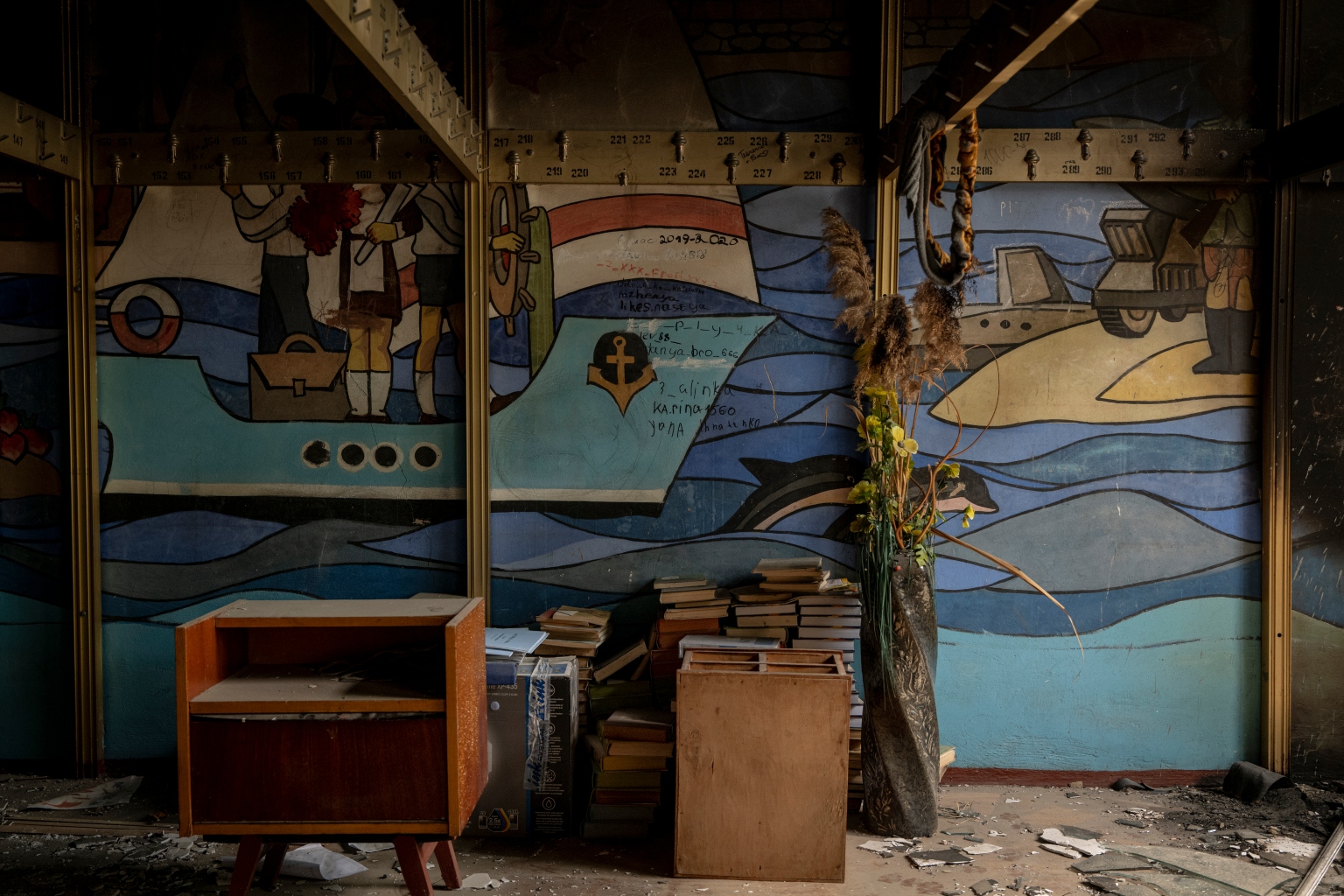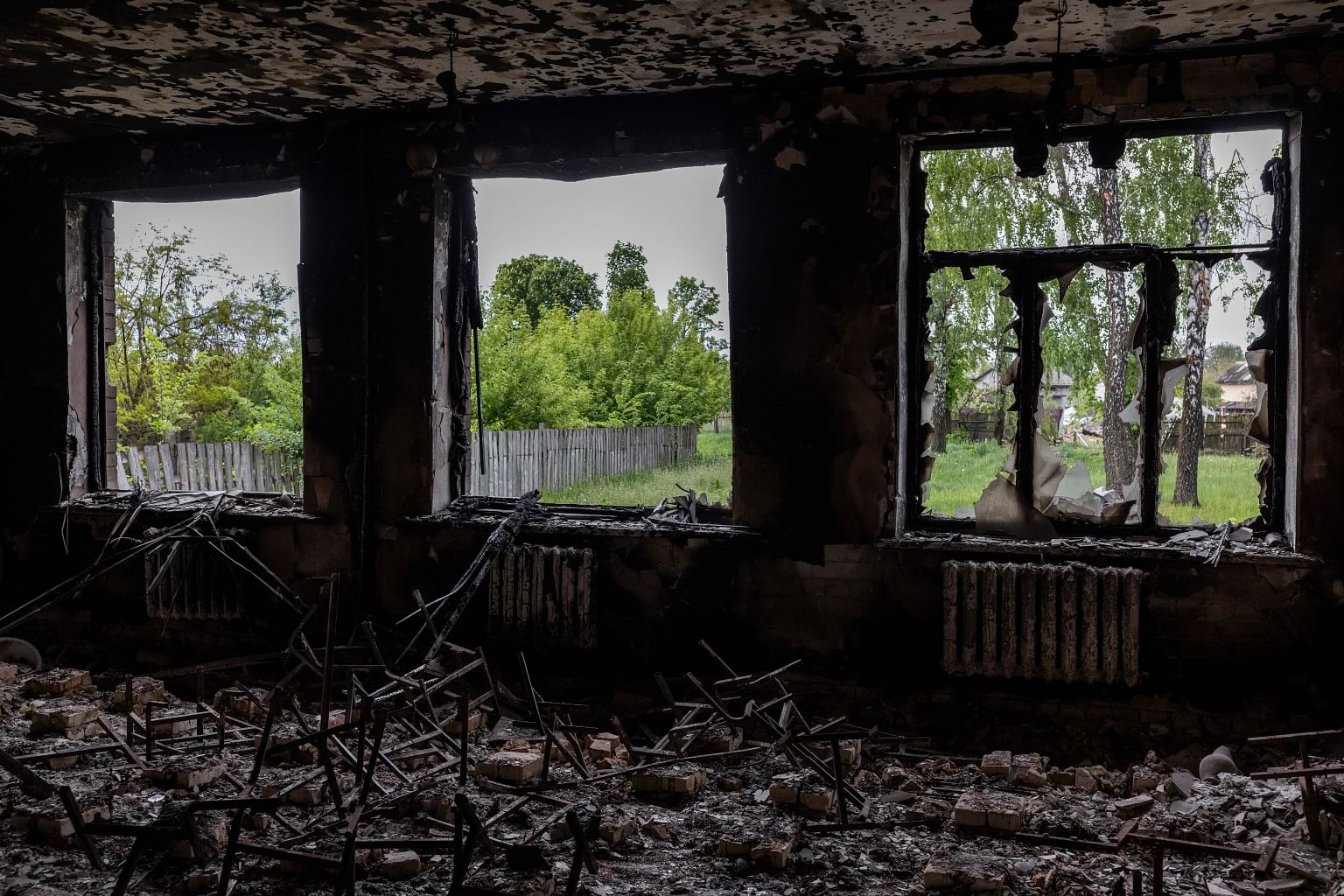Education is another casualty of war in Ukraine
Sign up now: Get ST's newsletters delivered to your inbox

A destroyed classroom inside a school used as a base for occupying Russian forces in Bohdanivka village, on June 4, 2022.
PHOTO: NYTIMES
BOHDANIVKA, Ukraine (NYTIMES) - Inside the primary school, formerly colourful walls are blackened, broken glass crunches underfoot and stacked books are exposed to rainfall through the blasted windows. In the yard sits the rusted frame of a decimated school bus that was once yellow.
Early in the war, Russian troops set up a headquarters in this school in Bohdanivka, a village near Kyiv, before retreating in April. Down the street, the kindergarten has just one brick wall standing - the Russians blew it up before they left town, Ukraine's former chief prosecutor, Ms Iryna Venediktova, said on a recent visit.
"Human remains were found in the sewers," she said.
This is the state of some of Ukraine's schools as the start of another school year looms, with no end to the war in sight.
More than 2,200 education facilities were damaged by Russian soldiers or shelling, 10 per cent of which were destroyed, according to Ukraine's Education Ministry, which has mapped the destruction.
Many of Bohdanivka's children are not here, anyway. Almost two-thirds of Ukraine's children have been displaced by fighting, living as refugees abroad or far from home in another part of the country.
"Russia is stealing the childhood of our children - it wants to destroy our future," Ukrainian President Volodymyr Zelensky said in June.
In that context, how will children learn? It is a question that parents, teachers and the government authorities are struggling to answer.
"Many parents want their children to attend school offline, communicate with their peers and receive a full-fledged education," said Ms Alla Porkhovniuk, a history teacher in Yuzhne, a coastal city near Odesa.
But Russian missiles strike Yuzhne frequently, she said, and "not everyone dares to send their child to school". Her school has more than 1,000 students - too many to fit into the basement that doubles as a bomb shelter.
"Choosing between education and life," she said, "parents, of course, choose life."
In the city of Vinnytsia, in central Ukraine, hundreds of miles from the front lines, many parents were advocating that schools reopen - until a missile strike on July 14 in the centre of the city killed 27 people, including a four-year-old girl, shattering the illusion of security.
Now, only 10 per cent of parents are willing to send their children to school, said Mr Vritalii Onishchyshen, who teaches Ukrainian language and literature in Zhmerynka, part of the Vinnytsia region.
"For two years during the Covid-19 epidemic, we were studying online," Mr Onishchyshen said. "Why, during the war, when the bombs come to schools, will we study in the schools? I believe that nothing is sacred for the Russians, so they will take the opportunity to use weapons in or near schools to create panic among the population."

At thousands of Ukrainian schools, classrooms are currently occupied by displaced people. Many teachers, like other civilians, have fled the country.
Ms Tetiana Sahaidak said the parents at her son Matviy's school had opted for remote learning, but she thinks he would be safer in school.
"At school, there is a bomb shelter and only three floors," she said. "At home, we live on the seventh floor, and we have no bomb shelter. So what will he do to keep safe when he is sitting alone at home at the computer?"


